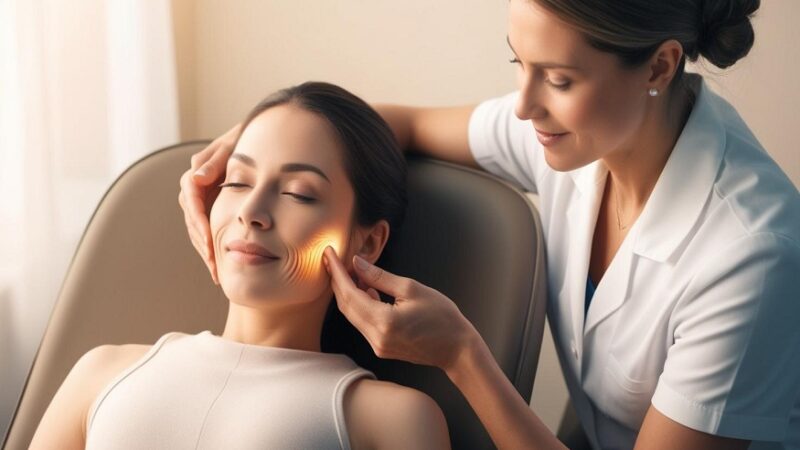Plastic surgeons, should we be ashamed of being “cosmetic” surgeons? And should we feel guilty for responding positively to the demand for “well-being”, aesthetic or physical, of people of sometimes advanced age?
2Perhaps, if we refer to the way in which the media very often represent us through the images and testimonies they convey… But is this what cosmetic surgery is? Is this surgery of cloning, of standardization, of putting into the “mold”, of conforming with an image dictated by our society, a surgery reserved for futile or even “brained” people?
3Wouldn’t it rather be a way to live better in and with one’s body…, to harmonize the body with the mental image one has of oneself, a “source of well-being” in a more individualistic world? and more selfish perhaps, in an increasingly intolerant society where appearance has taken a major place whatever our age?
WHAT IS COSMETIC SURGERY?
4Aesthetics, aisthesis in Greek, etymologically means “sensation”, “science of feeling”, before being more especially “the science of beauty” in nature and in art. This perhaps brings us closer to the truth, evoking a surgery of the sensation of oneself and the sensation of the other, a surgery of concordance of the body-representation of oneself, with the psyche, “ideation” of oneself. » [1]
Self-ideation: formation and sequence of ideas,….
5In this context, all degrees exist between a so-called “comfort” gesture or described as “cosmetic” and a stronger, deeper motivational intervention, a quest for psychosomatic harmonization. But in no case can this be a question of “standardization”.
6Perceiving cosmetic surgery as normative surgery, when there are no normative criteria of beauty, exposes it to all criticism, to all excesses, to all “commercial excesses” and represents real “nonsense”! Let us be wary of this notion of “market” and any attempt to bring it up to “standards”. Let us advocate the right to be different but also accept a reasonable and reasoned desire for bodily change!
7The right to be different is a fundamental notion which has as a corollary the horror of the norm as a value and the idea of tolerance in the paths to happiness. On the other hand, the right to resemblance with the image one has of oneself, to the harmonization of one’s body with one’s mind is just as lawful. It gives the patient the possibility of modifying himself to erase a difference that bothers him, to correct certain appearances due to the circumstances of life or to time which has inscribed the stigmata of age in the flesh. Cosmetic surgery becomes surgery of freedom, of equality and no longer of standardization, of homogenization: the nuance is important and only manifests itself in the way of exercising this profession.
INDICATIONS FOR COSMETIC SURGERY
8What legitimizes surgical recourse thus goes from the desire to correct a disgrace that one cannot accept, which “parasitizes” everyday life, to the metaphysical desire to fill the gap between essence and existence, between this that we are deeply, we believe, and the image that the mirror reflects, the image that we give of ourselves to others. Desire to feel in tune with yourself again, at peace with your physique. It is a surgery that we do for ourselves and not for others but which is linked, of course, in part to the view of others and of society.
9This perception of disharmony can appear at any age. In my clientele, patients aged over 65 represent, depending on the year, between 5 and 7% of all operated patients. It may be a recent concern but also an old problem that patients were unable to deal with before, as they were so busy with their family life (children) or their professional life. How many people “forget themselves” for a long period of their lives and, as they get older, “want to take care of themselves a little”, their well-being, after having taken so much care of others? .
Discover Cairn-Pro10This perception of disharmony, of discomfort, is certainly the prerogative of so-called modern societies, in which we expect from each of us, whatever our age, a reassuring and rewarding image. It would be quite different if we did not live in a civilization of appearance where image is king. Society in which we flee those who send us an image considered negative, and the elderly person in particular is part of this, he who reminds us of the inevitable progression of time towards this moment when we will have to resign ourselves to accepting the losses inherent in old age. Society oriented towards leisure, where all generations blend together without discernment, where the notion of the age pyramid has disappeared and where physique and individual comfort are valued to an extreme extent.
11This surgery to restore harmony therefore certainly finds its justification in the constraints imposed in the world in which we live; it appears lawful from the moment people request it for their own balance and not for others and to the extent that the intervention remains “reasonable”, not too “invasive” nor too “burdensome”.










